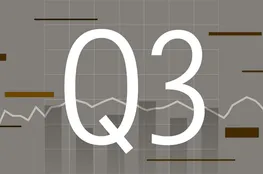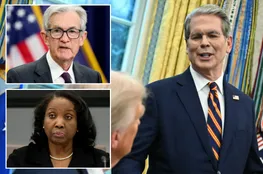Global markets experienced a notable upswing on Monday, primarily fueled by the yen's depreciation and the political upheaval following Japan's parliamentary elections. The elections resulted in the ruling party losing its majority in the lower house, which sent ripples through financial markets. In Europe, France's CAC 40 index rose by 0.7%, reaching 7,552.94, while Germany's DAX index increased by 0.5%, closing at 19,549.65. Meanwhile, the UK's FTSE 100 showed a modest gain of nearly 0.2%, ending at 8,260.84. These gains reflected growing optimism amidst changing political dynamics in Japan.
In the currency markets, the U.S. dollar surged against the yen, moving from 152.24 to 153.33. This rally represents a significant climb from the yen's 140-level price point just a month prior. The euro also saw a slight increase, trading at $1.0817 compared to the previous $1.0803. The yen's weakness has been welcomed by major Japanese exporters. Toyota Motor Corp.'s shares shot up 4.1% in Tokyo, while companies like Nintendo and Sony experienced 2% growth each, demonstrating investor confidence even amid political uncertainty.
The result of Japan's elections saw the Liberal Democratic Party (LDP) retain its prime status. However, a series of defeats, tied primarily to a scandal surrounding unreported campaign funding, has left the party's influence diminished. Alongside its coalition partner Komeito, the alliance secured 215 seats, a stark reduction from a former majority of 279, as reported by local media. As a consequence, analysts predict the Bank of Japan might hold back from making significant adjustments to interest rates during its upcoming policy meeting, especially since the LDP's losses had been largely anticipated and accounted for by investors.
Asian markets echoed these sentiments, with Tokyo's benchmark Nikkei 225 climbing 1.8% to finish at 38,605.53. Australia's S&P/ASX 200 edged up by 0.1% to 8,221.50. The Kospi in South Korea increased 1.1% to 2,612.43, while China's Shanghai Composite saw a 0.7% uptick to 3,322.20. Conversely, Hong Kong's Hang Seng index remained relatively stable, slightly increasing by less than 0.1% to 20,599.36. Investors are now turning their focus to company earnings, as more than a third of S&P 500 companies have reported results that mostly exceeded Wall Street predictions, further boosting market sentiments.
In the United States, there is cautious optimism as the Federal Reserve has raised its benchmark interest rate to levels not seen in two decades. The decision is part of an effort to curb inflation while steering clear of recession risks. A vital upcoming report is the Personal Consumption Expenditures (PCE) index, expected to signal that inflation is easing toward the desired 2% mark. Recent interest rate cuts, with further reductions anticipated during the Fed's November session, reflect this balancing act.
In the energy sector, U.S. crude oil saw prices drop by $3.46, landing at $68.32 per barrel, while Brent crude prices fell by $3.48 to $72.57. Analysts ascribe this decline to Israel's recent military maneuvers against Iran, which turned out less aggressive than projected and did not impact oil facilities. These political and economic developments continue to dynamically influence global markets, shaping the investment landscape as stakeholders evaluate the implications on future growth and stability.
























